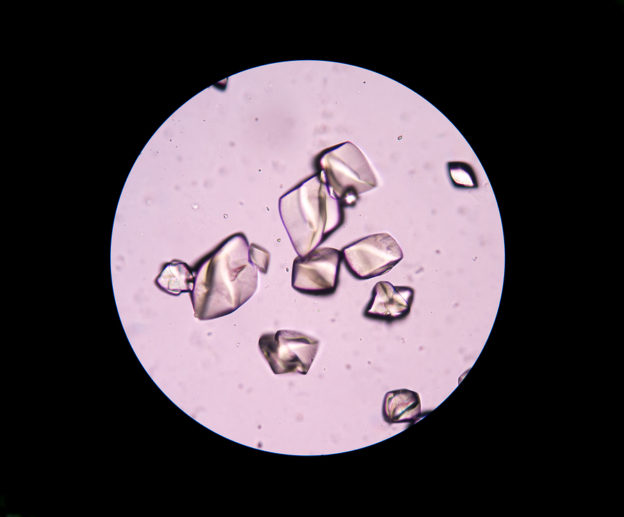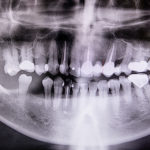By David Blyweiss, M.D., Advanced Natural Wellness
June 28, 2017
- Why everyone should know their uric acid levels
- Hyperuricemia and your 5-year health outlook
- Shut down gout, kidney disease and heart problems
You probably know your cholesterol and triglyceride levels by heart. It’s just as likely you can recite your blood sugar and blood pressure numbers when asked.
But do you have any idea what your uric acid level is?
Probably not.
In fact, there’s a good chance you don’t even know what uric acid is. That’s unfortunate, because it can play a dramatic role in your health.
This type of acid is a waste product. It’s produced when your body breaks down certain foods that you eat. Then it’s carried through your blood stream until it passes through your kidneys and excreted in your urine.
But sometimes you can produce more uric acid than you’re getting rid of. When this happens, it can result in a condition called hyperuricemia (pronounced hyper-yur-i-see-me-ya).
Open your arteries, improve blood flow for a new health miracle...
Did you know your circulatory system has over 60,000 miles of arteries, veins and other blood vessels, if stretched end to end?
But as you age, your blood vessels undergo changes, which may cause them to stiffen, thicken and get clogged.
GOOD NEWS! Doctors have now identified a “Miracle Molecule” inside your arteries that helps OPEN your arteries and IMPROVE blood flow.
It’s what Dr. Valentin Fuster calls it, "One of the most important discoveries in the history of cardiovascular medicine."To you, that means...
- Healthy blood pressure
- Sharper mind and memory
- Skyrocketing energy and muscular strength
- Increased pleasure and passion in the bedroom
- Improved circulation to every cell and organ in your body
Go here to discover a new natural way to significantly boost the levels of this miracle molecule in YOUR body NOW!
The incidence of this disorder has increased dramatically in the past few decades. And it’s seriously bad news for your health.
Gout, Uric Acid and Your 5 Year Health Outlook
Uric acid is well known for its role in the development of gout. It produces solid crystals in your joints that can result in excruciating pain. (Just ask any gout sufferer and they’ll tell how painful this condition can be.)
These same crystals can also form in your kidneys, resulting in painful kidney stones. This is another agonizing condition nobody wants to deal with. Even worse, elevated levels of uric acid are associated with higher rates of chronic kidney disease.
But that’s not the end of the story.
Hypuricemia is also associated with high blood pressure, the build up of calcium deposits in the arteries, irregular heartbeat, mental decline and diabetes. In fact, an otherwise healthy person with high levels of uric acid is more likely to develop many of these conditions within only five years.
So while it’s not something you hear much about, it’s just as important as many other health measures that you already keep track of.
Are You Suffering From...
- Love handles and a pot belly
- Romance that isn't what it used to
- Forgetfulness and inattention
- Low (or no) strength and endurance
- A sex drive that's shifted into neutral...or worse
If so...you may have Mature Male Burnout. Click here to discover more about this unique condition and what you can do about it.
And here’s the thing. Not everyone with hyperuricemia experiences gout. So you could have high uric acid levels without experiencing any immediate outward symptoms.
Reduce Uric Acid to Shut Down Gout, Kidney Disease and Heart Problems
If you’ve never had your uric acid levels tested, it would be a good idea to ask your doctor for the simple blood test on your next visit.
But don’t despair if your levels are high. There are several things you can do to bring your uric acid levels down and enjoy a long, healthy and active life.
The first thing I recommend to patients with high uric acid is to reduce their overall meat intake – red and otherwise – to about 13% of their diet or less. Organ meats, red meat and fatty fish are all high in purines, compounds that are broken down into uric acid.
Some vegetables, like asparagus, mushrooms, spinach and cauliflower are pretty high in purines, too. Other foods, including oatmeal, sugary foods and beverages, beer and alcohol, can also raise your uric acid levels.
So if you have high uric acid levels or frequent episodes of gout, these are all foods and beverages you’ll want to avoid. But there are others that you should include more of.
For example, drinking plenty of water is one of the best ways to rid excess uric acid from your body. Aim for at least 10 to 12 glasses a day. (Adding a squirt of fresh lime juice can enhance the effects.)
Cherries and cherry juice extract also have great effects on uric acid. They can lower it in just a few hours. Eating a half pound of bing cherries daily, or taking two teaspoons of black cherry concentrated added to a cup of water twice a day, will both do the trick.
I also recommend supplementing with 1,500 mg of vitamin C daily. This not only has a significant effect on your uric acid levels, it can also cut your chances of gout by almost half. Adding 500 mg. of quercetin each day can further slash your levels of uric acid.
SOURCES:
Kuwabara M, et al. Asymptomatic Hyperuricemia Without Comorbidities Predicts Cardiometabolic Diseases: Five-Year Japanese Cohort Study. Hypertension. 2017 Jun;69(6):1036-1044.
Karis E, et al. Hyperuricemia, gout, and related comorbidities: cause and effect on a two-way street. South Med J. 2014 Apr;107(4):235-41.
Kuwabara M, et al. Hyperuricemia is an independent competing risk factor for atrial fibrillation. Int J Cardiol. 2017 Mar 15;231:137-142.
Kim H, et al. Asymptomatic hyperuricemia is independently associated with coronary artery calcification in the absence of overt coronary artery disease: A single-center cross-sectional study. Medicine (Baltimore). 2017 Apr;96(14):e6565.
Suzuki K, et al. Elevated Serum Uric Acid Levels Are Related to Cognitive Deterioration in an Elderly Japanese Population. Dement Geriatr Cogn Dis Extra. 2016 Sep-Dec; 6(3): 580–588.
Jacob RA, et al. Consumption of cherries lowers plasma urate in healthy women. Nutr. 2003 Jun;133(6):1826-9.
Juraschek SP, et al. Effect of oral vitamin C supplementation on serum uric acid: a meta-analysis of randomized controlled trials. Arthritis Care Res (Hoboken). 2011 Sep;63(9):1295-306.
Choi HK, et.al. Vitamin C intake and the risk of gout in men: a prospective study. Arch Intern Med. 2009 Mar 9;169(5):502-7.
Shi Y, et al. Quercetin lowers plasma uric acid in pre-hyperuricaemic males: a randomised, double-blinded, placebo-controlled, cross-over trial. Br J Nutr. 2016 Mar 14;115(5):800-6.







